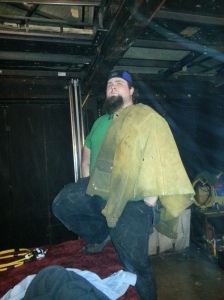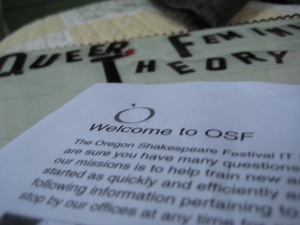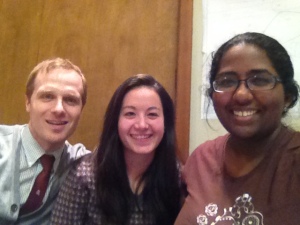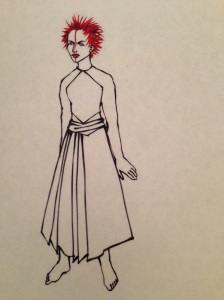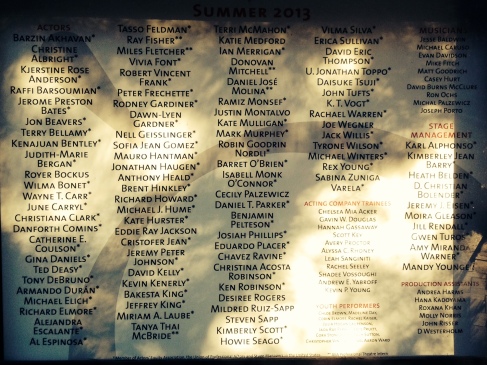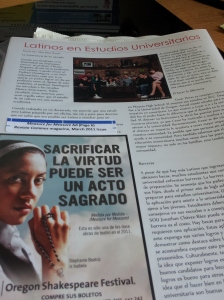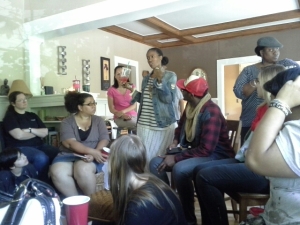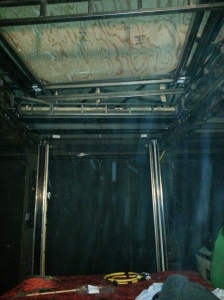
Though I am writing my first blog entry on my fifth day of living here in Ashland, I already know that when my Assistantship is over, I won’t feel as though I’ve had enough time here at the Oregon Shakespeare Festival. I am struck and moved by OSF’s diversity and inclusion mission because, while many organizations claim commitment to diversity, it seems to me that OSF actually walks the walk. Throughout show introductions, the campus tour, and the season kickoff party, I noticed again and again that the wide range of faces and voices I encountered at our first FAIR meeting is reflected throughout the staff.
Despite the diversity of the company, I have noticed that the common thread which ties the OSF organization together is a shared passion for the work that is produced here. From Artistic Director Bill Rauch’s tears during his season kickoff speech, to the Director’s presentation for Comedy of Errors made by Kent Gash, to my own HOD James Dean’s automation creation genius, it is apparent that the people who work at OSF are extraordinarily ambitious, dedicated, and take pride in the work that is done here.
My passion for theatre technology and desire to learn as I work make me feel right at home here; I have already learned a ton working with Tim “Gizmo” Hannon to install the lift for The Tempest. I will expand upon this week’s work next week as I build and assemble a smaller lift that will also be used in The Tempest. I will admit, because everyone in the automation department is SO good, I am a bit intimidated, but I continue to remind myself that I am here to learn and improve my skills while I contribute to each show and the department as a whole. Needless to say, I am thoroughly excited to be here.
